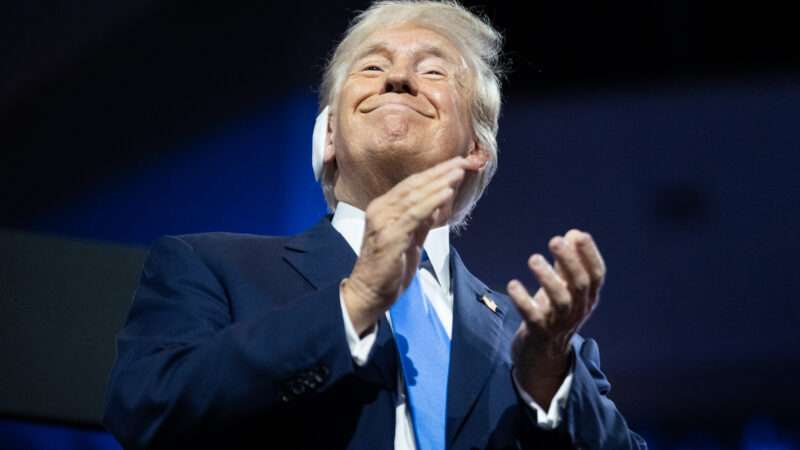
Two weeks before President Joe Biden officially proposed term limits for Supreme Court justices, former President Donald Trump preemptively condemned the idea. "The Radical Left Democrats are desperately trying to 'Play the Ref' by calling for an illegal and unConstitutional attack on our SACRED United States Supreme Court," Trump wrote on Truth Social, emphasizing the importance of "Fair and Independent Courts."
That critique glossed over the fact that Supreme Court term limits have attracted support from legal scholars on the right as well as the left. It was also hard to take seriously because Trump himself is hardly a consistent defender of judicial independence, which he values only when it leads to outcomes he likes.
In its 2021 report, the Biden-appointed Presidential Commission on the Supreme Court of the United States noted that "both liberal and conservative constitutional scholars" have advocated term limits. The commission, which included experts with diverse views, did not take a position one way or the other, but it heard testimony in favor of the concept from "a bipartisan group of experienced Supreme Court practitioners."
Under Biden's proposal, which copies the most frequently discussed version of this reform, justices would serve staggered 18-year terms, and each president would have a chance to appoint one every two years. Biden thinks Congress can create that system without a constitutional amendment—a point on which the commission's members were divided.
The commission noted that "life tenure is virtually unique to the U.S. federal judiciary." The top courts of nearly all the states and every other major constitutional democracy have term limits, mandatory retirement ages, or both.
Proponents of term limits argue that long, nonrenewable terms would preserve judicial independence while preventing any given president from shaping the court for decades thanks to luckily timed deaths or retirements. They say the benefits would include a more diverse mix of justices, less incentive for strategic retirements, less acrimony surrounding appointments, and more long-term correspondence between electoral outcomes and the power to choose the Supreme Court's members.
Opponents of the reform say it aims to fix something that is not really broken and that we should be wary of changing a system that has functioned well for hundreds of years. They also worry that term limits would foster legal instability, increase partisan bickering, further politicize the Supreme Court, undermine its perceived legitimacy, and weaken its independence.
Although Trump echoes that last concern, his sincerity is open to question. After all, this is the same politician who provoked a public rebuke from Chief Justice John Roberts by suggesting that federal judges reflexively side with the party of the presidents who appoint them.
Worse, Trump thinks judges should do the bidding of the president who picked them, provided that president was Trump himself. He reportedly was furious at the "betrayal" of two justices he had nominated, Neil Gorsuch and Brett Kavanaugh, who in July 2020 joined the majority in rejecting his challenge to a subpoena for his tax returns.
Later that year, Trump took his anger at the Supreme Court public after it declined to hear two cases challenging the outcome of the 2020 presidential election. He complained that the justices—including Gorsuch, Kavanaugh, and his third Supreme Court nominee, Amy Coney Barrett—had "just 'chickened out' and didn't want to rule on the merits."
Two weeks later, Trump called the justices "totally incompetent and weak" as well as cowardly. By refusing to consider his "absolute PROOF" of "massive Election Fraud," he said, they effectively endorsed "corrupt elections," meaning "we have no country!"
When Biden started talking about term limits, by contrast, Trump leapt to the defense of "our Honorable Supreme Court," which two weeks earlier had helped him out by approving potentially sweeping presidential immunity from prosecution. "We have to fight for our Fair and Independent Courts," he declared.
We can count on Trump to continue that fight—until the next time those courts reach a conclusion that offends him.
© Copyright 2024 by Creators Syndicate Inc.
The post Trump Values Judicial Independence Only When It Benefits Him appeared first on Reason.com.







